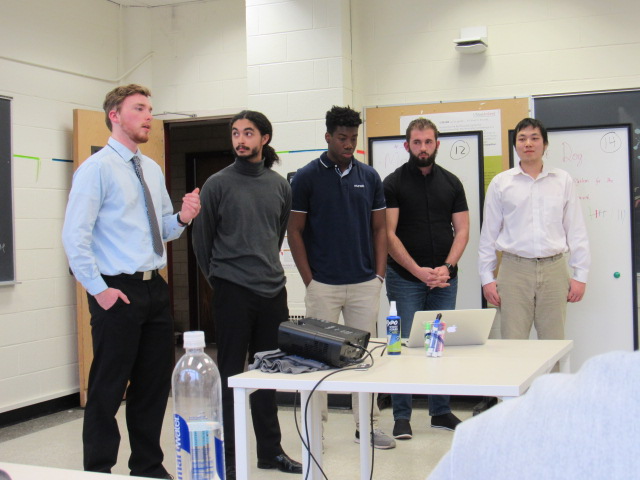On Feb. 10 and 11, 60 prospective entrepreneurs, engineers, coders and graphic designers gathered in Bartlett Hall at the University of Massachusetts for the ULaunch competition, with the goal of creating a team and launching a startup company.
The first day of the event consisted of piecing together teams of undergraduate students who pitched their ideas to a panel of judges. The selected teams were then given $100 for funding and asked to return for day two. The selected teams were allotted three minutes to pitch their idea, two minutes to show the product(s) and five minutes for discussion with the judges.
Ideas pitched on Feb. 11 varied from innovations in soda to developing applications for visually impaired people.
Garrett Coffman, a junior majoring in computer science, management and economics, and a software engineer for the application FrontMe, “started ULaunch with solely an idea.” But 36 hours later, Coffman was pitching what could become his life’s work.
FrontMe is “very geared toward students looking for a little bit of extra money to buy a book or buy food,” Coffman said. The application is simple. Users request a microloan, confirm when they will be able to pay it back and receive an interest rate based upon those variables. Students “need a less stressful and simple source of finance,” Coffman said. “[FrontMe offers] freedom to be able to borrow money without entering strict contracts.”
“GuideDog” is an application that is a navigation system for blind and visually impaired people. “[GuideDog] maps the user’s environment and tells them what is in front of them and how far away it is,” explained Shardool Pathak, a freshman computer science major who created the app.
“Smart canes can be up to $200, and will only tell you what objects are two meters in front of you on the ground,” Pathak said. While the initial cost for GuideDog is higher than a smart cane, the application can tell the user exact objects, people and other obstacles at significantly greater distances and with more accuracy.
In the future, the team intends to incorporate facial recognition technology. “With face recognition, this could allow blind people to recognize who is in front of them,” Pathak announced.
Erica Sullivan, a junior management major, boldly solo-pitched Acclimate, a company with the goal of “helping study abroad students transition to new environments.” Sullivan came up with the idea from her own experience as a study abroad student.
Acclimate “allows students to pre-order packages while at home and receive them when they arrive abroad,” Sullivan said. “Nothing exists like this in the study abroad market.”
Andrea Hanley can be reached at [email protected].



















